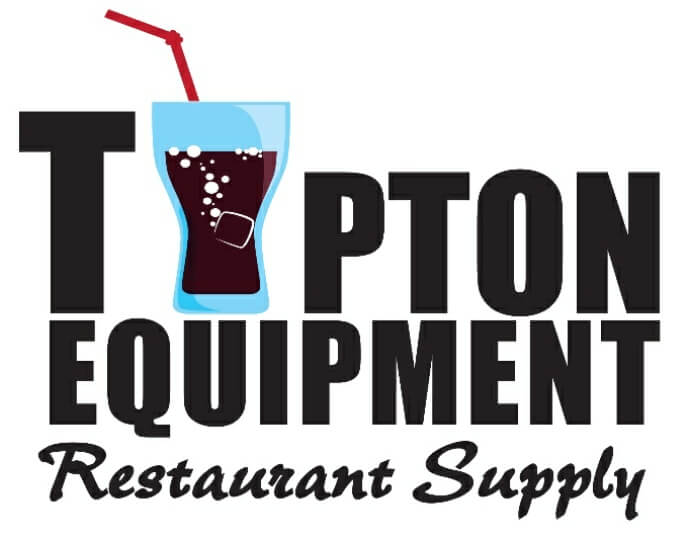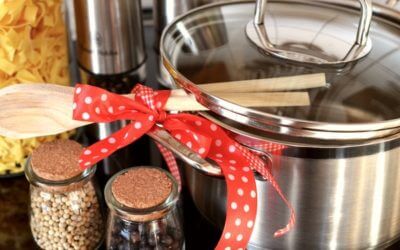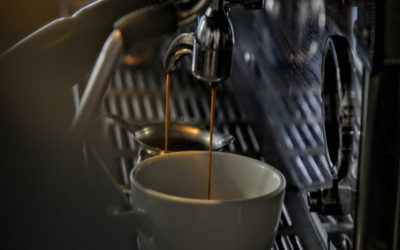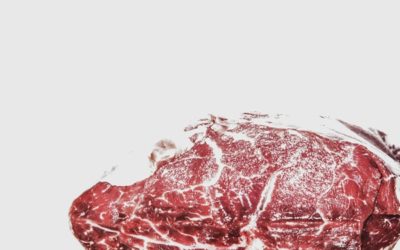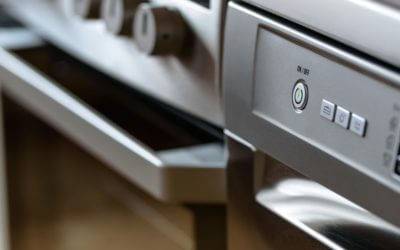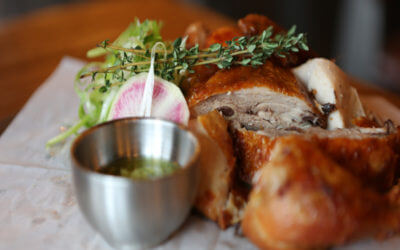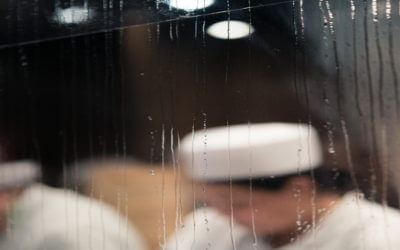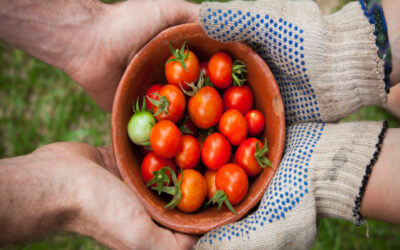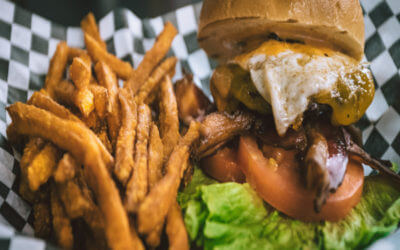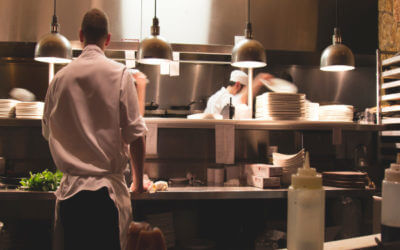Avoid Surprises During an Appraisal of Your Restaurant Equipment
July 8, 2017When it comes to time for your restaurant equipment to be appraised, confusion can set in.
For the purpose of the appraisal, personal goods are given value, but goods that are classified as ‘real goods’ are considered part of the real estate or the building structure and therefore, these are not classed as having any value. Many people don’t know the difference between personal restaurant equipment and real restaurant equipment. This conundrum is one that confuses many people each year and can lead to some shocking surprises along the way.
When we talk about personal equipment, we are referring to restaurant equipment that is not a permanent fixture. This includes free-standing equipment such as utensils, electronics, cabinets and other movable goods. Real equipment, on the other hand, is considered a permanent part of the real estate. So how about the walk-in refrigerator you have had installed? Is that classed as a personal item or is it a real item due to the fact that it is non-movable?
The truth of the matter is that the decision ultimately lays in the hands of the officer that conducts the appraisal.
Whatever the reason for the appraisal, be it for insurance purposes, buying or selling, or for use against a loan, it is important to know what equipment is considered personal and therefore valuable, and what is classed as real estate.
There are three main areas of a kitchen that need to be taken into consideration during an appraisal, and this article can help you learn about what to expect from said appraisal.
Ventilation and Fire Safety
Since most units are custom made to fit a set space, the majority of ventilation and fire safety units will depreciate in value over time. The first reason being that they will unlikely have use in any other premises due to their custom sized nature, and also due to the fact that they are usually fitted to an industrial standard, and thus they are difficult to remove without causing damage to both the real estate and the restaurant equipment itself. For these reasons, many ventilation and fire safety units lose value over time.
Refrigeration and Food Storage
Many large restaurants have a walk-in refrigeration unit. The appraisal price depends on several factors, including how permanent the structure is. Take a look at the floor. Is it raised? If it is raised, then it is most likely a temporary structure and thus not classed as part of the real estate. A tile or cement floor, however, leans towards the unit being considered a permanent structure and therefore not valued during the appraisal.
Other Areas with Attached Restaurant Equipment
From shelving and cupboards to seating and tables that are affixed to the floor, many permanently fixed features can be claimed by the landlord or real estate owner as being part of the real estate. This rings true especially if the removal of the items could cause potential damage to the property and could lead to the landlord making a claim for the fittings to avoid health code violations.
As you can see, it is important to take into account how permanent a piece of restaurant equipment is, whether any damage will occur from its removal and whether custom made units can be used elsewhere. Kitchen and restaurant equipment does not come cheap, so it is important to consider these factors before having any installations made. Knowledge is key and can help you save thousands in potential lost value.
What’s in a Cooking Pot, How to Choose the Right One?
As a restaurant owner, your cooking needs might vary. Did you know that a good quality pot can greatly improve your cooking experience, while also improving the quality of your cooking? This cooking equipment is a very important one that cannot be done away with...
5 Things Every Restaurant Owner Should Do Before Buying Used Kitchen Equipment
Equipping your restaurant properly can cost a lot of money, so buying used kitchen equipment is the go-to choice for many restaurateurs. Buying used kitchen equipment for a restaurant is a bit different than buying used equipment for your home, however. You will...
Top Restaurant Technology Trends in 2018
When looking to buy restaurant supplies, you want to be on the leading edge of technology trends. This will keep your kitchen running smoothly. Let’s take a look at some of the most recent trends in restaurant supplies technology. 1. New Payment Options Who would...
5 Different Ice Shapes and Why You Should Care About Them
Ice makers are very popular in the restaurant and foodservice community because they eliminate the need to buy ice every day. And of course, adding an ice maker to your collection of foodservice equipment means you will always have ice on hand when you need it. An...
Pulping and Grinding: A Starter’s Guide to Reducing Commercial Food Waste Costs
For most restaurant owners and managers, the expenses involved in making meals are always under careful consideration. Water is needed to prepare, cook and wash food; power is necessary for food prep, cooking and cooling, and so on. However, how many of us consider...
Choosing the Right Milk Cooler: Cold Wall or Forced Air?
In a restaurant, milk is an essential to have on hand for coffee and other café-style beverages, for serving with kids’ meals, and as a key ingredient in many recipes. Keeping your milk properly chilled can be difficult without the proper restaurant equipment....
How to Choose Your Next Commercial Meat Smoker
The movies that connect with us on a personal level are the ones that linger in our memories forever. Anyone who has used a commercial meat smoker knows that they have a huge influence on the taste of a meal. You need to have just the right kitchen equipment to get a...
Are High Speed Ovens Too Good to be True?
You might have heard a few of the bold claims that foodservice equipment manufacturers have been making about high speed ovens, but they can’t be possible, right? Cooking three times as faster as regular ovens? Five times as fast? Fifteen times as fast? It may seem...
Choosing the Right Food Storage Containers for Your Restaurant
Choosing the right kitchen supplies will make a difference in your restaurant. Whether it is heavy duty kitchen equipment or food storage containers, each piece of equipment plays its own important role. Today, we are going to talk about how to choose the right food...
Tipton’s Guide to Perfect Poultry Trussing
Do you ever truss birds in your commercial kitchen? Trussing is a fantastic cooking technique because it makes poultry cook faster, look more attractive and taste better. If your commercial kitchen prepares poultry, you don’t want to miss these trussing tips. Trussing...
How to Eliminate Excess Condensation in Your Kitchen
Is your commercial kitchen getting steamy? If so, you could have more than just an uncomfortable working environment on your hands. Excess moisture in your commercial kitchen can result in the corrosion of equipment, the development of mold, and even damage to your...
The DIY Guide to Your Restaurant’s Own Garden
Stocking your restaurant supply with your own home-grown herbs and produce can truly bring your dishes to life. When it comes to food, everyone knows there’s nothing like homemade and home-grown. Having your own culinary garden, however large or small, can help you...
5 Reasons a Meat Grinder Will Set Your Burgers Apart
The more you do to prepare your foods in-house with the right kitchen equipment, the fresher and more flavorful your dishes become. There are all sorts of restaurants offering fast-food style burgers, but some diners are looking for the real deal. A fresh, juicy...
Pest Preventions to Implement in Your Commercial Kitchen
Restaurant pests: it’s something that few people want to think about. Like it or not, pest management is an essential consideration for every commercial kitchen. Offering food, shelter and water, the unprepared commercial kitchen naturally provides everything pests...
Choosing the Right Material for Your Cooking Equipment
Kitchens are very unique to their chef. Just like a car mechanic has a toolbox unique to them, so is the cooking equipment in a kitchen. And over time, the same cooking equipment become a natural extension of the chef. What tools are you using in your kitchen? It...
